Introduzione
Video|https://www.youtube.com/watch? v=ZQZWDRpEM6o]
L'iPhone è caduto e si è schiantato? Ti mostrerò come sostituire un vetro posteriore rotto su un iPhone XR. Questa guida è l'equivalente di uno smontaggio, tranne che la si riassembla dopo nel nuovo telaio.
Cosa ti serve
-
-
Spegni il tuo iPhone prima di iniziare lo smontaggio.
-
Rimuovi le due viti Pentalobe lunghe 6,7 mm sul lato inferiore dell'iPhone.
-
-
-
Posiziona strisce sovrapposte di nastro adesivo trasparente sullo schermo dell'iPhone fino a coprire l'intera superficie del display.
-
Se non riesci a far aderire la ventosa nei prossimi passaggi, piega un pezzo resistente di nastro (come il nastro adesivo americano) come un manico e solleva lo schermo con quello.
-
-
-
Tira indietro la manopola blu per sbloccare i bracci dell'Anti-Clamp.
-
Fai scorrere i bracci oltre il bordo sinistro o destro dell'iPhone.
-
Posiziona le ventose vicino al bordo inferiore dell'iPhone, una sul davanti e una sul retro.
-
Premi insieme le ventose per fargli fare presa sull'area desiderata.
-
-
-
Tira in avanti la maniglia blu per bloccare i bracci.
-
Gira la maniglia in senso orario di 360 gradi o finché le ventose iniziano a allungarsi.
-
Assicurati che le ventose rimangano allineate tra loro. Se iniziano a scivolare fuori dall'allineamento, allenta leggermente le ventose e riallinea i bracci.
-
-
-
Scalda un iOpener e infilalo tra i bracci dell'Anti-Clamp.
-
Piega l'iOpener in modo che si appoggi sul bordo inferiore dell'iPhone.
-
Aspetta un minuto per dare all'adesivo la possibilità di scollarsi e creare un'apertura.
-
Inserisci un plettro di apertura sotto lo schermo e la cornice di plastica, evitando di toccare lo schermo stesso.
-
Salta i prossimi tre passaggi.
Please UPDATE THIS STEP to say 'insert the opening pick underneath the PLASTIC FRAME OF THE SCREEN' and not the screen. Way too many people are taking this as the way to do it then posting their screen looks different when it's open when they've actually removed the screen leaving the frame in place. It's not rocket science.
Thanks for the suggestion! We updated this step to clarify that.
-
-
-
Usa un asciugacapelli oppure prepara un iOpener e applicalo per circa un minuto al bordo inferiore dell'iPhone per ammorbidire l'adesivo sottostante.
An alternative to the Iopener or heat gun is to heat water to EXACTLY 80 degrees F (cooking thermometer is great for this) and pour into a reinforced ziplock type bag. Leave the bag on the screen, but be sure that none of the hot water rests on the zipper portion, as the water is hot enough to soften that seal and leak out on to your device! This meat had is my personal favorite as the heat is distributed very equally and precisely as compared to a heat gun, but is more accessible than the Iopener.
-
-
-
Tira la ventosa applicando una trazione forte e costante fino a creare una piccola fessura tra il pannello frontale e il case posteriore.
-
Inserisci un plettro di apertura sotto lo schermo e la cornice di plastica, evitando di toccare direttamente lo schermo.
-
-
-
Fai scorrere il plettro di apertura attorno all'angolo inferiore sinistro e lungo il bordo sinistro dell'iPhone per tagliare l'adesivo che tiene in posizione il display.
I think it's important to note that depending on how a screen was damaged, make sure to insert the pic under the black bezel directly under the actual screen. This bezel is a frame around the digitizer. I unknowingly inserted the pic between the bezel and the screen, and separated them both. I did this all the way around the phone. So I basically had to struggle to keep together two different sections of the display assembly because of this mishap, until I removed all the ribbon connectors. It made things much more difficult.
-
-
-
Inserisci nuovamente il tuo attrezzo nell'angolo inferiore destro dell'iPhone e fallo scorrere lungo il lato destro del telefono per separare l'adesivo.
My replacement screen for the XR has a black rim but it looks pink. Is that normal?
Step 11 says not to insert your pick around the right side to avoid damaging cables, then Step 12 says to insert it on the right side. Help, I'm confused!
Hi there!
Thank you for the feedback! The wording in step 11 was definitely ambiguous, so we have changed it! You only need to avoid the marked spots rather than the right edge.
-
-
-
Apri l'iPhone sollevando il display dal lato sinistro, come per sollevare la copertina posteriore di un libro.
-
Appoggia il display contro qualche tipo di supporto per mantenerlo aperto mentre lavori sul telefono.
sure looks like the "hinge" is on the right hand side to me.. not left...!
If you leave the suction cup attached to the screen during the “hinging” process, it makes for a very handy holder for the screen until it’s completely detached.
-
-
-
Rimuovi le tre viti tri-wing Y000 da 1,2 mm che fissano la staffa di protezione del connettore della batteria.
-
Rimuovi la staffa.
Definitely make sure all three lobes of your tool are aligned before use (it’s a little harder to tell with this style of bit) and apply even and adequate pressure to ensure it grabs as you spin the driver to prevent disfiguring the lobes/slot of the screw head.
Unfortunately my Y000 tool was perhaps not the best fit (tolerance a bit off) in these screws and I ended up stripping out the heads of all three of these. I started to panic but after I sanded the tip of my Y000 bit down a little with super fine grit (1000CW-C) sand paper to flatten the domed tip (visible with macro lens) and give it a bit more bite I was able to remove and reinstall without issue—in fact I had to remove and install them twice since I forgot my adhesive tape during reassembly, so the screws survived and the sanded bit worked.
+1 to above comment. I bought a cheap kit from Amazon and the Y000 screw driver is not good for this job. I’m concerned that I may have disfigured the heads and i type this comment in the midst of my fix :D Be gentle and assess if you can remove at least one screw with your driver before rummaging through all three and other similar screws holding display connector as well.
Update to above comment. I got hold of a Y0.8 screw driver bit (lucky to find an ORIA screw driver kit in my office) and it works like wonders :) Now back to work…
-
-
-
Usa la punta di uno spudger per sollevare il connettore della batteria dal suo zoccolo.
-
Piega lievemente il connettore per allontanarlo dalla scheda logica e impedire che possa fare accidentalmente contatto con lo zoccolo e quindi alimentare il telefono nel corso della riparazione.
-
-
-
-
Rimuovi le tre viti tri-wing Y000 da 1,2 mm che bloccano la staffa del connettore del display.
-
Rimuovi la staffa.
-
-
-
Usa la punta di uno spudger per staccare e disconnettere il cavo del digitizer.
-
-
-
Usa la punta di uno spudger per scollegare il connettore del cavo del display.
The new display cable isn’t snapping in but I was just able to snap in the old one. Did I break the new one somehow?
Same it is really frustrating, just keeps slipping up and its bound to get damaged
-
-
-
Rimuovi le cinque viti che fissano sul case posteriore la staffa del connettore della scheda logica.
-
Una vite a croce Phillips da 1,3 mm
-
Una vite a croce Phillips da 1,5 mm
-
Tre viti tri-wing Y000 da 1,2 mm
I’m not sure it makes much if any difference, but we went ahead and swapped the order for you guys. Thanks for your comments!
I just repaired another XR, and you are right! It doesn’t make any differnerce in the order these screws come out. I still damaged this fragile piece. As I work on more of these, I’ll figure out a way to remove this screw without damaging the clip. For now everyone, just use extra caution when removing the 1.3mm phillips screw! Thanks Jeff
I’ve now done at least 6 of these so far and I have fairly consistent good results by taking the 2 Philips head screws out first, then doing the Y screws.
Stow -
Is this piece important for the repair if broken? I have broken it on a home repair. What is it used for? Is it a grounding connection or is it completely unimportant. More information needed please
I’m wondering that too. Is this piece important?
I can confirm that taking out the 1.3 mm screw first then the 1.5 mm screw works the best. If done correctly, you should be able to to remove the rest of the screws and pull the panel off with the clip still attached to the panel. For reassembly, start with the 1.5 mm screw then the 1.3 mm screw.
I don’t remove the small screw at all. I just slide out the metal cover plate and slide back in to reassemble.
this is what i have done as well. Care is still needed to avoid damaging this part. However, it is seemingly far less prone to damage or loss and thus less risky for this repair process.
I too broke this shield. In looking over this problem I believe it’s best to loosen, but not remove, either screw first then the other. To be clear, loosen the red or yellow screw but only just to break it free, then the second screw. Then remove both and the others and the shield should remain in one piece. I put it back with the broken part (on the red screw) and made sure the two are in contact so there’s conductivity as these shields serve a purpose other than just holding in connectors. My phone works fine with this fix.
Is this small bracket important if broken??
Mine is broken
Mine is broken and my apple pay doesn’t work. Something to do with NFC antenna this little clip??
I'm guessing so. I replaced a screen on a phone I bought from a friend. I noticed this bracket was broken when I disassembled the phone but didn't think much of it. When I reassembled it my NFC also does not work. Bummer. A lot of people in these comments have asked if it is crucial that this bracket be connected. Can someone from iFixit or other please reply to those comments?
Kyaw-Zin is right because the shield contains of two tin parts. But there is another option:
1. Unscrew the yellow and orange screws first.
2. Lift the shield gently that it can turn about 20° anticlockwise.
3. Open the red screw and let the shield turn with it the first degrees.
The first time I did this repair, I didn’t see the comments ahead of time and broke the bracket, even removing the 1.3mm screws first. The second time I did the repair, I was prepared and being extra careful, but the simple act of turning the 1.3mm screw head was enough to break it. If I ever have to do this repair again, I’ll just leave the screw in and try to slide the plate out with the screw (and bracket, hopefully) still in tact, as per Kyaw-Zin Win.
None of the screw driver bits I got fits the 1.3mm and 1.5mm screws. How do I remove them?
Same issue as above. The bits provided in the kit do not work with the 1.3mm and 1.5mm screws
Further to above comment about bit not working. Had to go and purchase another PH000 from Home Depot and that worked
I’ve broken that little bracket attached to the red screw. Is it important and can I get a replacement????? Thanks all
Broken the clip. Is this important??
Don't remove the 1.3 Phillips screw! Twisting this screw will break the smaller bracket that is clipped to the larger. Remove all the other screws. Block the smaller bracket from moving as you gently slide the larger bracket horizontally toward the battery until free. The smaller bracket can stay in place while the screen is replaced. When reassembling, support the small bracket by backing with a spudger or similar tool.
I just broke the smaller bracket also :( I didn´t notice these comments until now :(
It looks like part of the antenna for NFC, as all except NFC works on my iPhone now.
It should be repairable using some wire wrap wire, either twisted around the two screws that connected that part of the bracket (or soldered in place). I will try and report back if it works.
Success!! I managed to re-construct the small arm of the bracket by screwing the 1.3mm screw back in with some 0.3mm enamel wire soldered into what was left of the small bracket arm on the screw, then the other end of the enamel wire I wrapped under the 1.5 wire screw's head (enamel exposed to bare metal), then screwed both screws down. also I lifted up the small metal arm with a screw driver (to make sure it reconnects with the display grounding square) ..and NFC worked again (slightly different antenna pattern mind (need to place cards slightly higher up the rear of the phone). Anyway works again :)
-
-
-
Usa la punta di uno spudger per staccare dal suo zoccolo il connettore del gruppo sensori frontali.
During testing, make sure your proximity sensor is not on upside down, as it’s easy to connect upside down. Your phone will boot loop if it’s on incorrectly.
-
-
-
Rimuovi il gruppo display.
unclear if this is where screen removal ends
I had the same question, but the answer is yes. Steps 21-30 are removing parts from the original screen that need to be reattached onto the new screen. You are no longer working inside the frame, but on the back of the screen itself.
I apologize for missing these comments initially, but yes that’s correct, the screen is removed now and the rest of the guide goes on to other parts, either in the phone or on the back of the screen. Good luck with the repair!
The alternate method of removing the battery should be highlighted as a standard option. There is so much more work and potential to damage the parts than if you left them in place and carefully with plenty of heat remove the battery. I so wish I had seen this before!
-
-
-
Rimuovi le sette viti a croce Phillips che bloccano la staffa sotto il Taptic engine e l'altoparlante:
-
Tre viti da 1,4 mm
-
Due viti da 1,7 mm
-
Una vite da 1,9 mm
-
Una vite da 1,6 mm
Why remove all this stuff for the battery? Is it necessary to do any of steps from here to 32 for the battery at all?
Removing these parts facilitates removing the bottom adhesive tabs but is not necessary. If you remove the upper adhesive tabs, then heat the backside of the lower ones (which you do if you couldn't get the tabs out), the battery comes out easily. Removes 14 steps from this procedure.
-
-
-
Rimuovi le cinque viti che fissano l'altoparlante inferiore:
-
Un distanziale a vite da 2,8 mm
-
Un distanziale a vite da 2,3 mm
-
Una vite a croce Phillips da 2,3 mm
-
Una vite a croce Phillips da 1,8 mm
-
Una vite a croce Phillips da 1,6
I was able to get the 2.8mm standoff screw out with a 1.5 mm flat head from my iFixit kit but was not able to find anything to get the 2.3mm screw out. Buying the standoff screwdriver begrudgingly. I wish I'd known about this before I started.
Recommend PH00 for the 1.8 and PH000 for the rest.
-
-
-
Rimuovi la piccola staffa nell'angolo superiore destro dell'altoparlante.
-
Rimuovi la cover del connettore del Taptic Engine.
-
-
-
Rimuovi l'altoparlante.
you may be able to reuse the gasket if you heat the glue. You may want to consider this because I can’t find the gasket through ifixit.
do we have to remove all the extra stuff such as this if we're just replacing screen display? what is the importance?
If you want to get the surface prepped nicely, tightly roll up the corner of a KimTech wipe, add some IP, then gently use your spudger tip to wipe excess gasket material from the area. Take your time!
-
-
-
Rimuovi le due viti a croce Phillips da 1,8 mm che fissano il Taptic Engine.
-
-
-
Ogni pezzo di adesivo ha una linguetta di estrazione nera alla sua estremità attaccata al bordo laterale della batteria con adesivo poco tenace.
-
-
-
Stacca la prima linguetta di estrazione sul lato destro del bordo inferiore della batteria.
Yes I think this is very discouraged to use tweezers to do this task (like it is shown on the picture), applying a force to pull the adhesives can easily result in an unintended action on the battery. These adhesive do generally break anyway. Better use the dental floss solution as mentioned in step 41.
Welp fellas extra careful on this part, I wasn't enough and punctured the battery which led to a small fire reaction, luckily with only 15% of charge it barely did anything. EXTRA CAREFUL I REPEAT TAKE IT SLOW
-
-
-
Tira lentamente la linguetta adesiva in direzione opposta la batteria, verso la parte inferiore dell'iPhone.
-
Tira in modo continuo, mantenendo una tensione costante sulla striscia finché non scivola fuori da sotto la batteria. Per risultati ottimali, tira la striscia mantenendo l'angolo più basso possibile con il piano, evitando però ogni contatto con gli altri componenti dell'iPhone.
-
Se le linguette si rompono durante il processo di rimozione, usa le dita o delle pinzette a punte arrotondate per riafferrare la parte rimasta e riprendi a tirare.
-
-
-
Se una delle strisce adesive si rompe e la batteria rimane attaccata al case posteriore, prepara un iOpener oppure usa un asciugacapelli per riscaldare il case posteriore direttamente dietro la batteria. In questo modo l'adesivo si ammorbidirà.
-
Rovescia l'iPhone e fai passare un filo robusto (come del filo interdentale o un pezzo di corda di chitarra sottile) sotto la batteria.
-
Tira il filo da un lato all'altro con un moto alternato come se usassi un seghetto, per separare l'adesivo. Quest'operazione può richiedere del tempo, perché l'adesivo si deforma lentamente, ma con un po' di pazienza si staccherà. Non deformare o danneggiare la batteria.
Personally, I would recommend using drops of isopropyl alcohol. This softens most kind of sticky things. Then pry the battery out. Since you're replacing the battery, damaging it shouldn't be a worry.
As long as you don't puncture it as i did lol
-
-
-
Rimuovi la batteria dall'iPhone.
-
Incolla la batteria, scollegala dalla scheda e procedi con il riassemblaggio.
Changed the Battery but the new battery shows Service symbol..what to do?
Just replaced the battery, but the new one is draining like crazy. Even faster then the old one? Did I get a faulty battery?
I might have the same issue ill try calibrating it and force restarting.
-
-
-
Rimuovere le 2 viti che fissano la piastra della fotocamera
-
Una vite Phillips da 1,6 mm
-
Una vite distanziatrice da 2,4 mm
-
Rimuovere la piastra della fotocamera
-
Con uno strumento di apertura, scollegare il connettore della fotocamera
-
-
-
Usa uno strumento di espulsione della sim o una graffetta per rimuovere il vassoio della SIM.
-
-
-
Usa uno strumento di apertura o un'unghia per rimuovere 9 connettori dalla scheda logica.
-
-
-
Rimuovere le seguenti viti:
-
Vite di fissaggio da 2,9 mm
-
Phillips n. 000 da 1,5 mm
-
Phillips n. 000 da 1,6 mm
-
Rimuovere la staffa di messa a terra
-
Rimuovere il lettore SIM
-
-
-
Rimuovi le 5 viti che fissano la scheda logica al case
-
Vite di supporto da 2,9 mm
-
Vite di supporto da 2,8 mm
-
Phillips n. 000 da 1,8 mm
-
Rimuovi la scheda logica.
-
Per riassemblare il dispositivo segui il video.
Per riassemblare il dispositivo segui il video.
Annulla: non ho completato questa guida.
Altre 45 persone hanno completato questa guida.
Un ringraziamento speciale a questi traduttori:
100%
Questi traduttori ci stanno aiutando ad aggiustare il mondo! Vuoi partecipare?
Inizia a tradurre ›
8 Commenti
Muy buena explicacion, me salio perfecto, hasta la taza de café me tome mientras se secaba jaja. Saludos
Excellent instruction step by step guide. Great video. This is very complete and very easy guide with superb narrative style . Thank you Mr Arty. This 40 step format , illustration and photo quality, and description narrative is gold standard practice . Thank you !
exactly I was confused as to what to do
Save yourself the time and buy the iPhone XR housing. For $29 you'll shave 2.5 hours off the 3 hour repair. My glass did not come off in chunks using a heatgun, it just splintered. I wasted a good 40 minutes chiseling off the part of the back plate, denting the aluminum inner plate before I found that Amazon had the part available for next day delivery.
Excellent , thanks 👍

















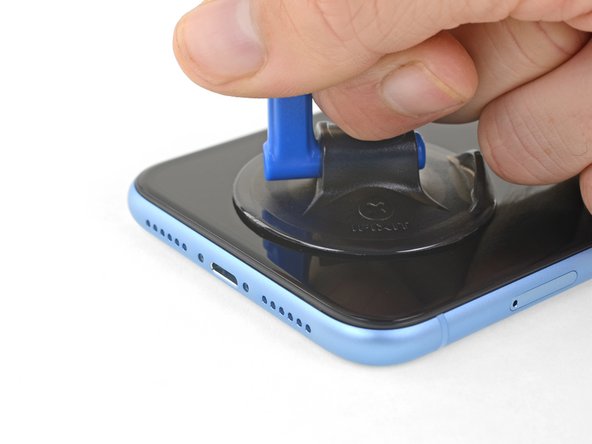























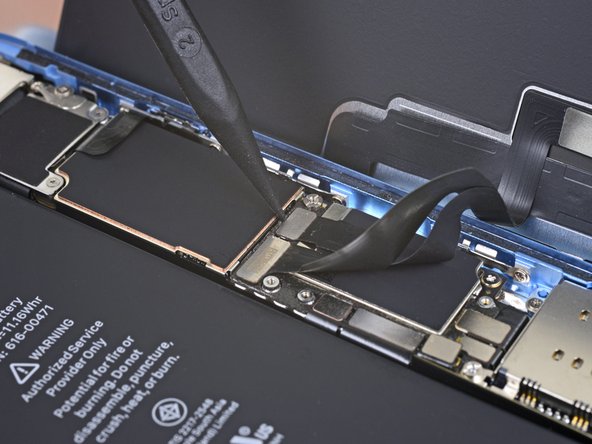



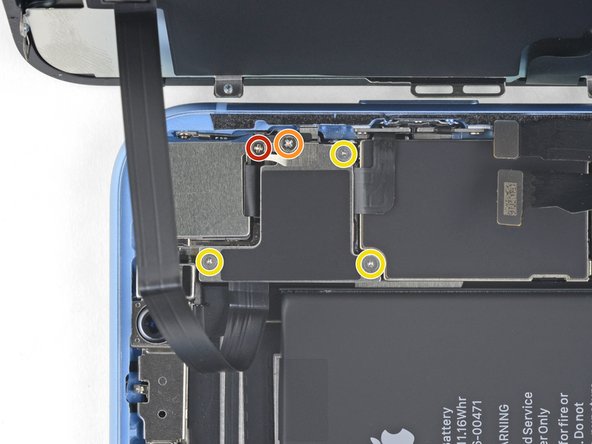








































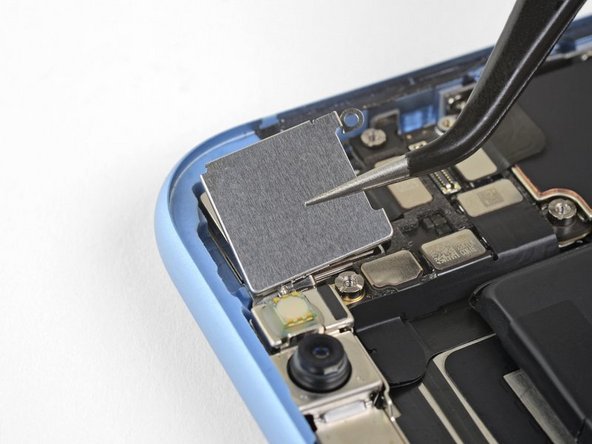
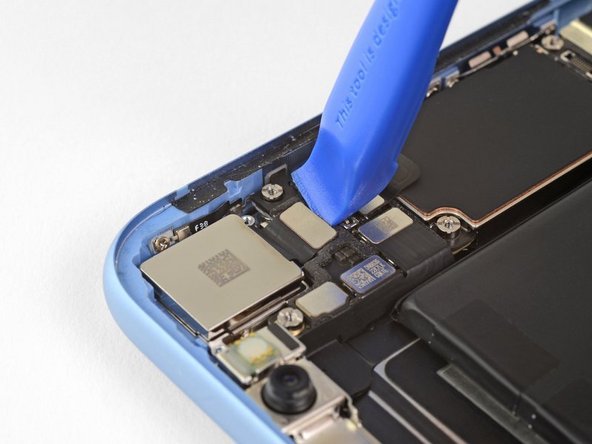

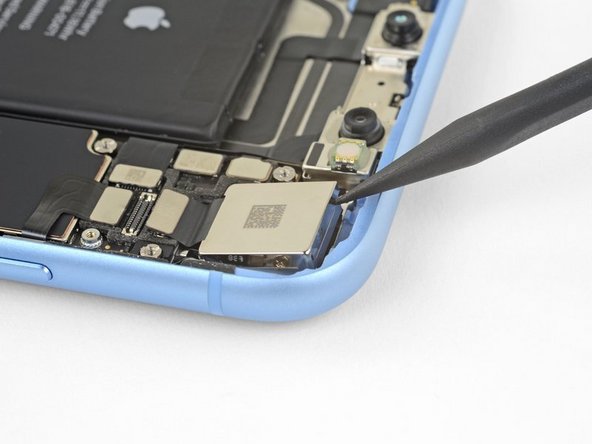


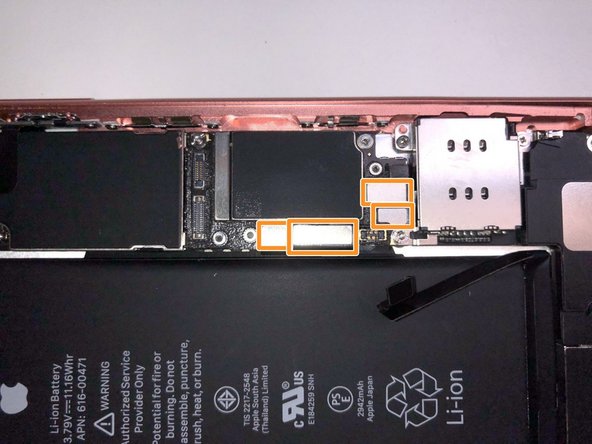

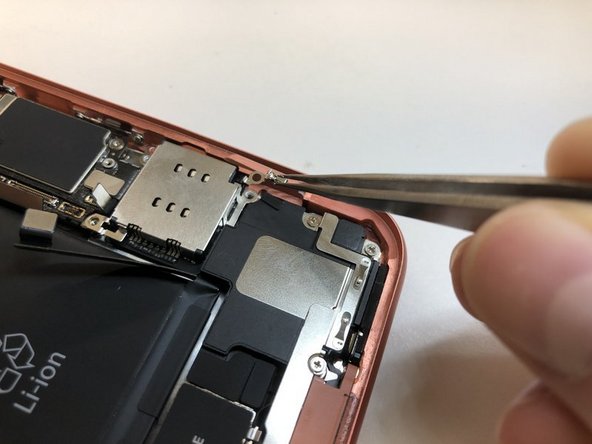
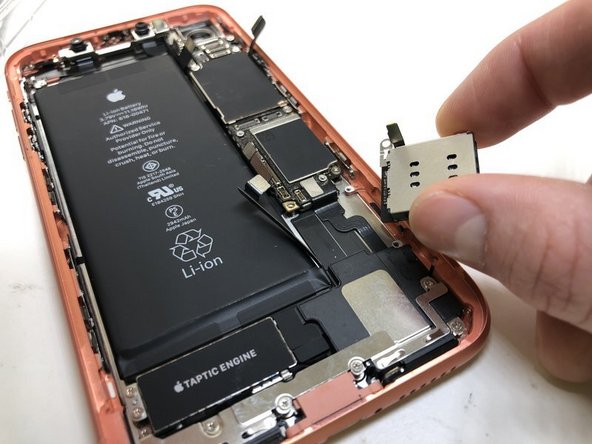

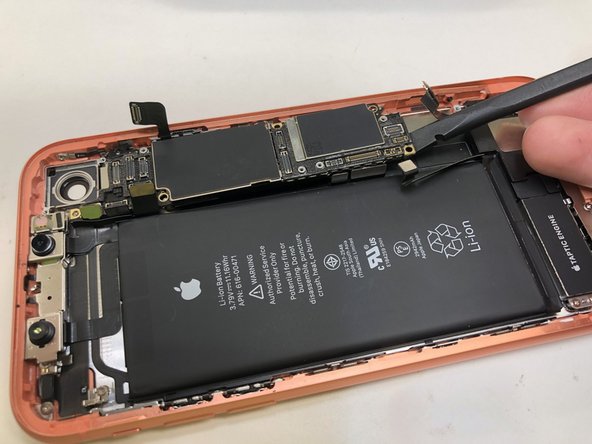
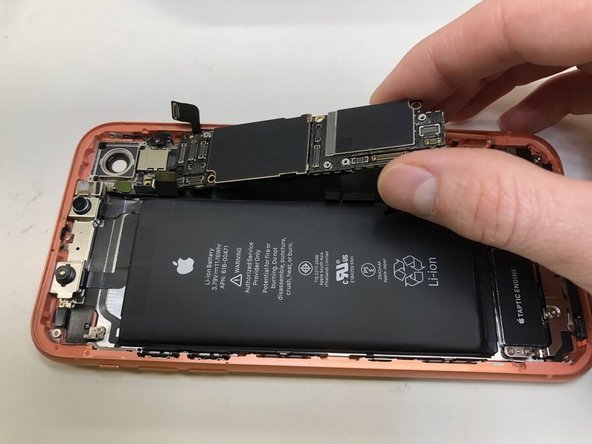




One of my gaskets was as shown in your second photo, the other had been worked into the threads (as if smeared) probably from the factory and was completely unusable.
In place of replacements (unsure of where to purchase) I just used a clear silicone caulking on both screws upon reassembly to offer at least some water seal. I wish these gaskets were included with the gasket waterproofing sealant kit!
Erica - Replica
Is there any place to buy these screw gaskets? I haven’t seen it mentioned anywhere but one of mine was pretty much chewed up. Silicone should work but I’d prefer the oem solution.
Chilinh Nguyen - Replica
I found a place on Amazon that sells them. It's cheapest to get a full set of screws than to get just these. $5-$6 USD.
J Olin -
Can it be dead?
Lulu navarro - Replica
If I transfer the data from the old to the new battery with an icopy, don't I get an error message?
David Julian Krause - Replica
how am i supposed to know if the battery is below 25% if the screen won't turn on?
Beth Jackson - Replica